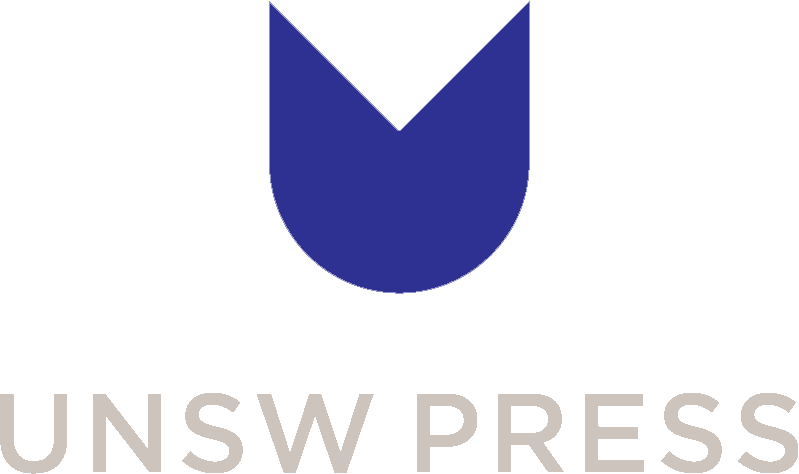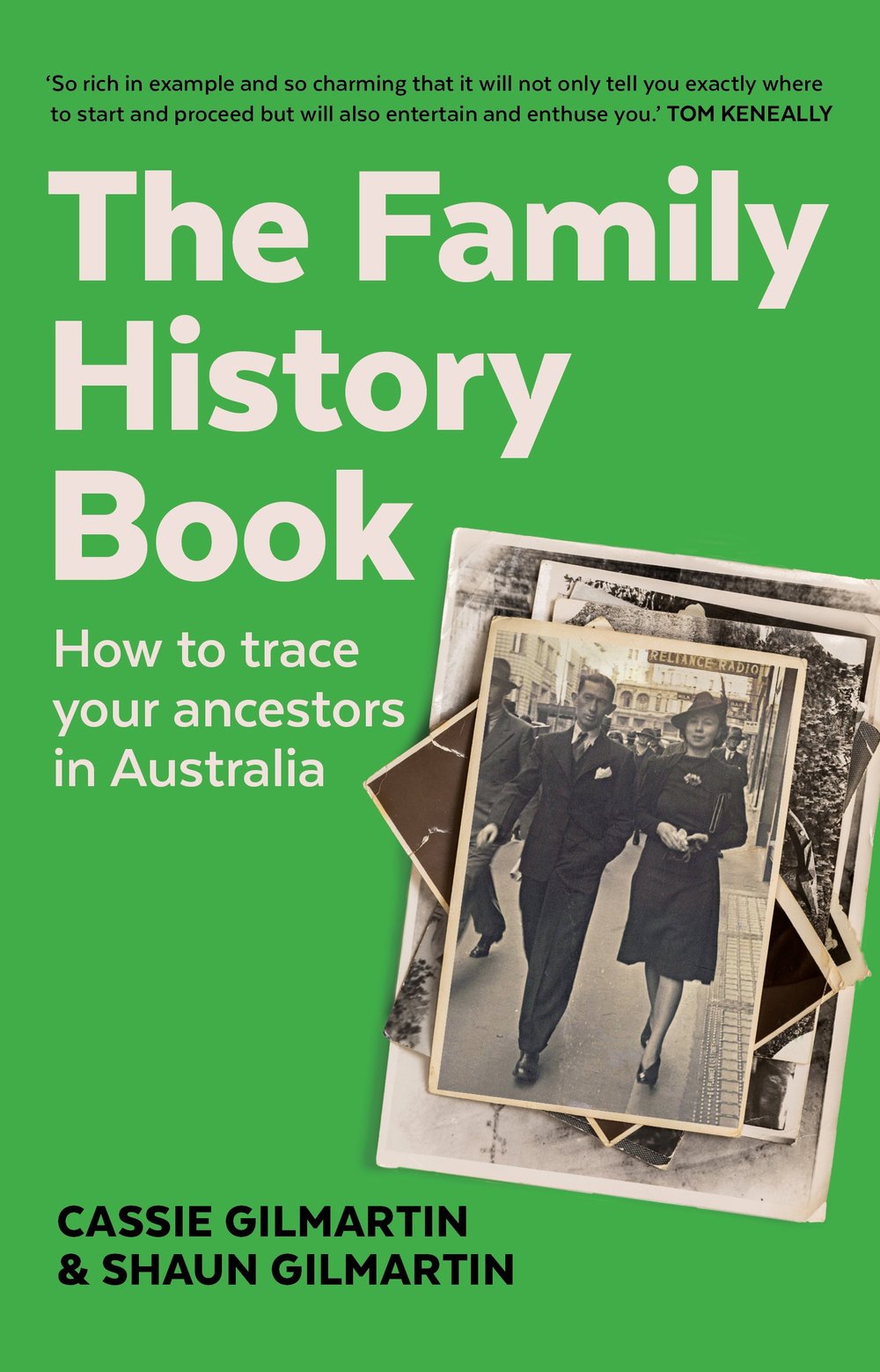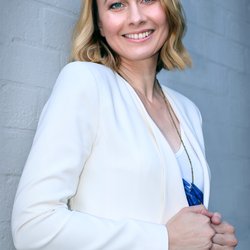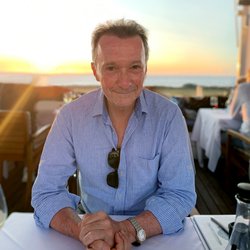To celebrate the release of The Family History Book: How to trace your ancestors in Australia, we sat down with authors Cassie and Shaun Gilmartin to learn about sparked their interest in ancestry, and the surprising truths they learned about their own past.
Cassie, you have said that your fascination with family history began when your mother revealed that you were a descendant of an Irish highwayman and a madam of a brothel. Can you tell us about that?
C: I was probably about 20 when my mum discovered this. She'd been researching our family tree for a few years and kept finding convicts in the family! The highwayman, Edward Turley Smith, and the madam, Jane Maher, quickly became favourite ancestors. Both were transported here, Turley for life for highway robbery between Dublin and Cork, and Jane for seven years for receiving stolen goods.
The more we found, the more I was intrigued. Yes they were probably career criminals, but I could look at their crimes and behaviour as really fascinating, and part of a bigger story that was happening in Ireland at the time.
The reason we are so into history is that you can learn so much from the past, it’s endlessly absorbing.
How did you feel when you first learned about your ancestry?
C: I was really excited that I had Irish ancestry! And I felt proud of them because they faced such adversity, as many convict transportees did, and they were exiled to the other side of the world – it takes a certain kind of resilience to overcome that. They were such rogues in Ireland, particularly Turley who was a brazen opportunist, a swindler, a con man, and the more we read about him and Jane, the more interesting they became to me.
And I loved that the newspaper at the time referred to the brothel as being of the 'Lower Sort'. I thought that was fantastic – those two words, and the fact they were capitalised, revealed so much! Jane arrived in 1797 on board the Brittania, dubbed a ‘hell ship’ due to the particularly sadistic nature of the ship’s captain. She survived that journey, and within a year was running a successful bakery at the Rocks.
'The reason we are so into history is that you can learn so much from the past, it’s endlessly absorbing.'
Shaun, you’ve mentioned that exploring your family history allowed you to learn more about your father – would you share a little about that experience?
S: My father died when I was just two, we were in England at the time. My mother must have found it too hard on her own as she decided to join my grandparents who had emigrated to Cape Town, South Africa. That's where I spent my school years.
My father was never mentioned. Because it was the norm, and the house was filled with adults, I never questioned it. That came much later.
I finished school and, returned to the UK. I pursued a career in news and current affairs, travelling the world covering the stories that were making international headlines.
Perhaps because I was so busy, I didn't feel the need to investigate my own past. But when I rubbed up against bureaucracy my lack of familial knowledge did cause issues on some occasions. Filling in official forms was one of those times: what's your father's date of birth? I didn't know. When I asked my mother, she changed the subject.
It was only until I was in my late thirties that curiosity about my invisible father began to demand more of my attention. I asked my mother again for information. She handed me a box filled with scrapbooks she had of me as a child – school reports, photographs, invitations – as well as a picture of a man standing in front of his car.
'This is your father,' she said. 'He loved you very much'.
It was a truly surreal moment.
Fifty percent of my DNA came from this man and I knew almost nothing about him. I tried to imagine what his voice would have been like, what kind of person he was, and what he believed in. Suddenly I needed to know as much about him as I could. And so began my dive into records of all sorts. It continues to this day.
'50% of my DNA came from this man and I knew almost nothing about him. I tried to imagine what his voice would have been like, what kind of person he was, and what he believed in. Suddenly I needed to know as much about him as I could. And so began my dive into records of all sorts. It continues to this day.'
I imagine that investigating his life might have been emotional at times – do you think it helped you gain a deeper understanding or closure?
S: I wouldn't say it was emotional really; I had no connection with the person in the photograph. Searching the various archives for mentions of him felt more like researching a documentary I was producing about someone else, rather than looking into my own past.
I discovered the building blocks of his life – death certificate, birth certificate, census records and much more. But that just yielded a range of facts; they didn't give me very much to relate to.
The breakthrough came when I unearthed his military service.
In my filming career, I have worked with several RAF squadrons, often flying with them on missions over hostile territory. I felt strangely at home in the air, even during aggressive manoeuvres – far more comfortable than being on the ocean in a yacht.
To my amazement, I discovered that my father had been a pilot in the Royal Flying Corps during the First World War. Is it possible he'd passed on his airborne experiences to me in my genes? At the moment I don't know whether that is possible, maybe DNA testing will provide answers in the future.
But what I do know is, when I read his reports I suddenly felt an affinity with the 'anonymous' man in the photograph. We had a connection.
Cassie and Shaun Gilmartin are the authors of The Family History Book: How to trace your ancestors in Australia, published by NewSouth on 1 October.




